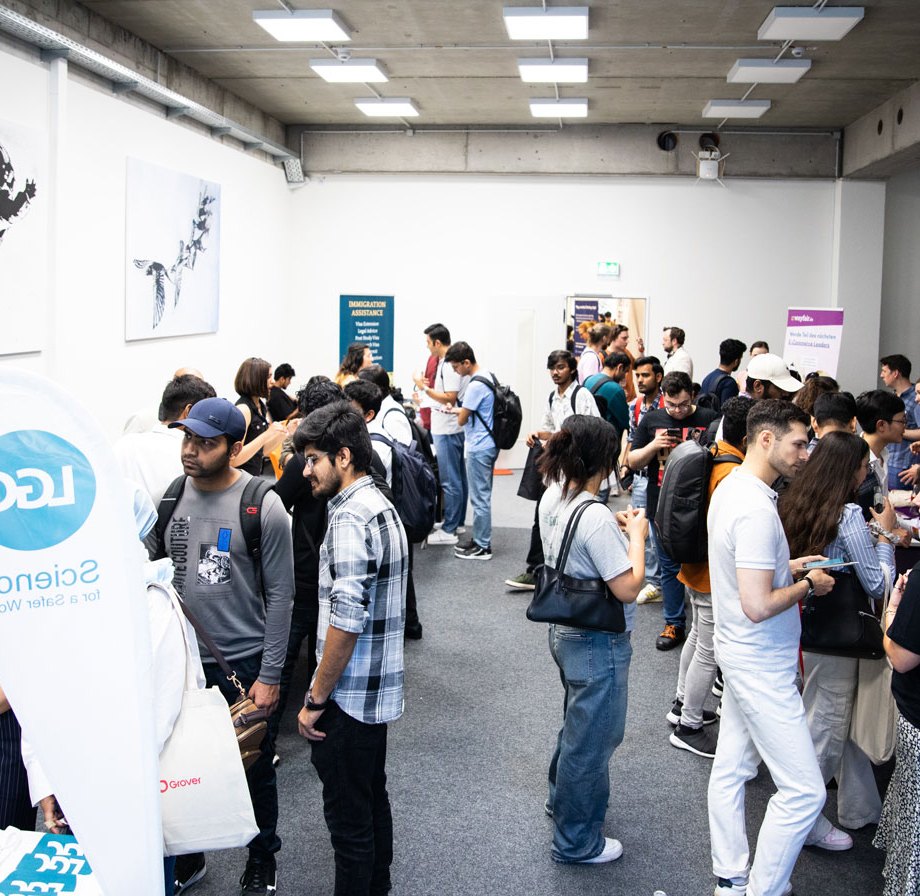

The constant refreshing of emails, re-reading the job description, drafting and deleting follow-up emails and so on. The process can be exhausting, frustrating and somewhat damaging.
The job application stage can be a stressful time for anyone looking for employment. No matter what level, industry or type of job role, there will be times when you may not hear back from a job application.
This can be hard to take. It is natural to question your skills, experience and overall ability to perform the role without sufficient closure, and it is challenging not to take rejection personally.
So, why does this happen and how can you increase your chances of hearing back from a job application?

Top 10 reasons for no response after submitting an application
Here are the top 10 reasons some employers may not respond to an application.
- High volume of applications
The number of applicants is the most common reason you may not hear back from an employer after applying for a job. Sometimes, you will receive an automated message notifying you that because of the volume of applications, the company cannot give any tailored feedback, however, sometimes you won’t hear anything. This can be because of the time and effort it takes to respond to every applicant or if you didn’t meet the requirements in the initial screening.
2. Incomplete application
This is another common reason for a job application no response scenario. Perhaps you thought you completed the application, but you clicked save rather than submit or maybe you missed a section or submitted the application incorrectly? These are all common mistakes which will lead to no response from an employer who may not have even received your application.
3. Internal or recommended hires
If a company hires internally, perhaps via a promotion or someone from another team, you are sometimes unlikely to hear back after applying. This can happen for several reasons, including the ease of onboarding and applicants with a reputation of excellence from a respected professional.
4. You don’t meet the job role requirements
This is an obvious one, and as touched on earlier, many companies do a pre-screening process to identify the strongest candidates and save time. This can be done using keywords pulled from your CV, cover letter, answers or any additional documents. If you don’t use any of the keywords, it will often mean your application isn’t viewed by anyone.
5. Poor quality CV or cover letter
Another common reason for no response after applying for a job is an insufficient CV or cover letter. Most job applications require you to submit a CV and cover letter as evidence for why you are a good candidate for the role. Therefore, it is important to have an updated CV and a well-written cover letter to progress your application. If your cover letter is not tailored to the job description, you may also miss the initial screening.
6. Outdated job advert
One of the most frustrating reasons why you may not hear back from a job application is if the role has been filled already. Outdated job applications which have not been closed can give candidates false hope and waste their time during a job search. Always look for an application deadline when applying for a job.
7. Competitive job market
You must bear in mind that you will be directly competing with other candidates. Due to the high demand for jobs, the job market is highly competitive, and you will often be competing against hundreds of others in the same position. This means employers are looking for any mistake in your application. It is important to be vigilant and apply early!
8. Legal implications of feedback
Some companies may fear that providing feedback may make them vulnerable to legal issues due to how feedback is received. Therefore, to avoid any unnecessary legal risks, some companies have a no-feedback policy.
9. Limited HR resources
If you are awaiting feedback after applying for a job at a smaller company, you may not hear back due to their lack of HR infrastructure. This is common in small start-ups and local companies with limited resources.
10. Subjective nature of recruitment
Lastly, there may not even be a reason! The subjective nature of the hiring process can mean you are overlooked for a position because of a few minor things that may be the very reasons why you are considered for another job role. Sometimes, you have to accept that you just weren’t the right fit, and no feedback is needed.

How to increase your chances of job application feedback
Whether it’s a job application follow-up email or filling your application with keywords from the job description, use these tips to give yourself the best chance to hear back from an employer.
- Complete your application
It may sound simple, but this is the most important tip. Double-check your application has been submitted in the right format, to the right person and on time.
2. Use keywords in your application
Keywords are important during initial screenings using Applicant Tracking Systems (ATS). By using the keywords in the job description, you’ll ensure that your CV is at least seen by a human!
3. Personalise your CV and cover letter
An important tip is to tailor your CV and additional documents to the role and company you’re applying for. This can be done by highlighting and detailing relevant experience and using examples in your cover letter that align with the requirements of the job role.
4. Job application follow-up
Haven’t heard anything in a while? Don’t wait for feedback, go looking for it! If it’s a week or two past the deadline, it’s time to get an update by reaching out to the employer with a polite and succinct job application follow-up email. This way, you won’t be forgotten, and you can get closure if you’re not the right fit.
5. Be patient
Arguably the most important advice is to be patient and trust the process. Just like applying for a job, hiring takes a lot of consideration, which takes time. Usually, the hiring process involves more than one person, so try to be patient and accept you may not hear back immediately.
Secure your dream job today!
Feedback is an important part of every application process. When you don’t receive feedback, it is easy to catastrophise, but as mentioned, there are many reasons why some employers do not give feedback to applicants.
If you want to fulfil your career goals and enhance your chances of securing a dream job, join us at the University of Europe for Applied Sciences. By studying one of our innovative programmes, you will gain access to our dedicated careers team who help students and graduates pursue job roles in Germany and worldwide.
Take your career to the next level by finding a programme that matches your career goals here.